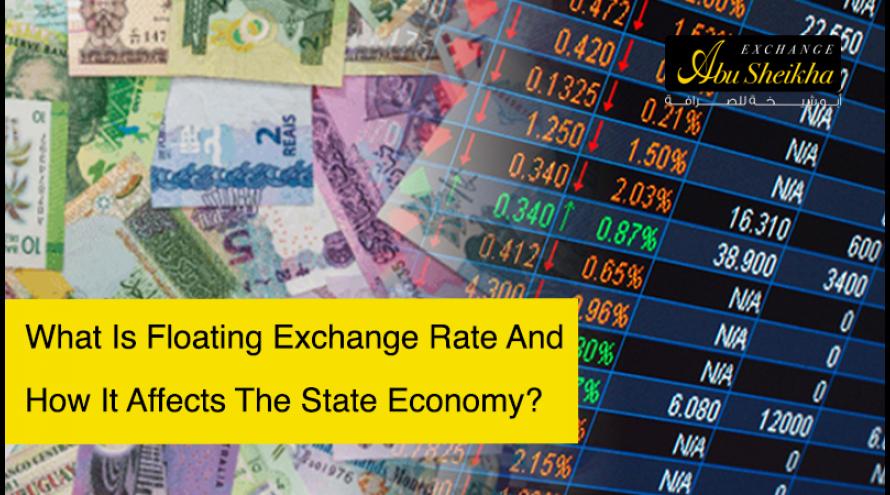What Is Floating Exchange Rate & How It Affects The State Economy?
A floating exchange rate is when a country’s currency is determined by the supply and demand of other stronger currencies.
Floating exchange rate is speculated and determined on the open market where supply and demand factors play a huge role. When the supply is greater than demand, the currency price will fall. And if the demand is greater than the supply, the currency price will increase.
The economy and political situation of a state determines the currency’s strength or weakness. Hence, if the government of a country is witnessing instability in its economic or political status, its currency will most likely drop. Some of the instability factors include recession, inflation, changes in interest rates, debts, political riots, and others.
However, governments should do their best to keep the currency at favorable levels to prevent external intervention from other governments.
What is the Difference between Fixed & Floating Exchange Rates?
As it is mentioned above, the floating exchange rate is determined by the open market through supply and demand factors. On the contrary, a fixed or pegged exchange rate is determined by the government of a certain country and not by any external factors.
If the fixed rate is set against a stronger currency, such as the US dollar or Euro. The government will sell and buy its currency against the major currency to maintain the exchange rate.
For example, developing countries are more likely to peg their currency to the US dollar as it could encourage investment and decrease the inflation rate.
Does Jordan Have a Floating Exchange Rate?
Jordan had adopted many currency exchange systems across different periods of time, from floating to fixed. Jordan’s currency is the Jordanian Dinar and it is abbreviated to JOD. It has been the official currency since 1950 when it replaced the Palestine pound.
The currency is now pegged to the US dollar with a fixed exchange rate of 0.7090 per US dollar. Jordan had witnessed noticeable stability in its currency rate which is reflected on the country’s flourishing economy and ability to attract foreign investment.
By pegging the JOD to the USD, Jordan is benefiting from currency stability which is more likely to attract bank deposits and investments. Although, by pegging, Jordan can’t determine its currency value in the open market, in case it wants to respond to economic changes, such as inflation or recession.
Is the Euro a Fixed or Floating Exchange Rate?
Euro is the official currency of 19 countries in the European Union which includes a total of 27 countries. It is called the euro zone and it includes France, Germany, Austria, Belgium and others.
Euro is considered the second most traded currency after the US dollar in the foreign exchange market. The currency’s exchange rate is free-floating similar to the currencies of economically and industrially strong countries, such as the United States and China.
What is a Managed Floating Exchange Rate?
Also known as the dirty float, a managed float is a currency exchange regime that allows regular intervention by the government or the central bank in the foreign exchange market to change the direction of the currency to meet specific needs. For example, balancing the economy, reducing risks of recession, improving currency’s position, etc.
Managed floating is a flexible regime as it combines between the benefits of a free floating system while enjoying the option of reducing the risks related to a free-floating currency. So if the currency’s value is unstable meaning it keeps increasing and decreasing, the central bank can intervene to reduce the unfavorable effects.
How does the Floating Exchange Rate Affect The Economy?
The floating exchange rate system normally leads to currency fluctuations. However, there are main advantages of such a system which are related to internal economic improvement: addressing unemployment issues, ensuring stable growth, achieving price stability, etc. Hence, the government has more freedom to fix internal economic issues which reflects on the currency’s position and strength in the market later on.
Choosing a floating or fixed system depends on how economically and industrially independent a country is comparing it to its neighbors. If a country is experiencing economic and political instability, it has to shift to a floating system to achieve macroeconomic goals.
Advantages & Disadvantages OF Floating Exchange Rate
Floating rate system has the following advantages:
International management, such as International Monetary Funds, won’t have to inspect account imbalances. If the country has currency deficits, the currency automatically depreciates.
Unlike the fixed exchange rate system, Central Banks won’t intervene on a regular basis to ensure gold parity.
The floating exchange system protects its countries from other countries’ macroeconomic issues and gives more space for the government to fix the internal economic problems.
Key disadvantages:
High volatility exchange rates.
High volatility leads to exchange rate risks, hence countries with a floating rate system allocate scarce resources to predict exchange rate changes and manage the risks as much as possible.
There is a chance that the internal economic status of the country will worsen as unemployment rates, inflation, and others increase.
Abu Sheikha Exchange will make sure you get access to the best foreign exchange rates and also give you information about the status of the Jordanian Dinar and other floating currencies.



